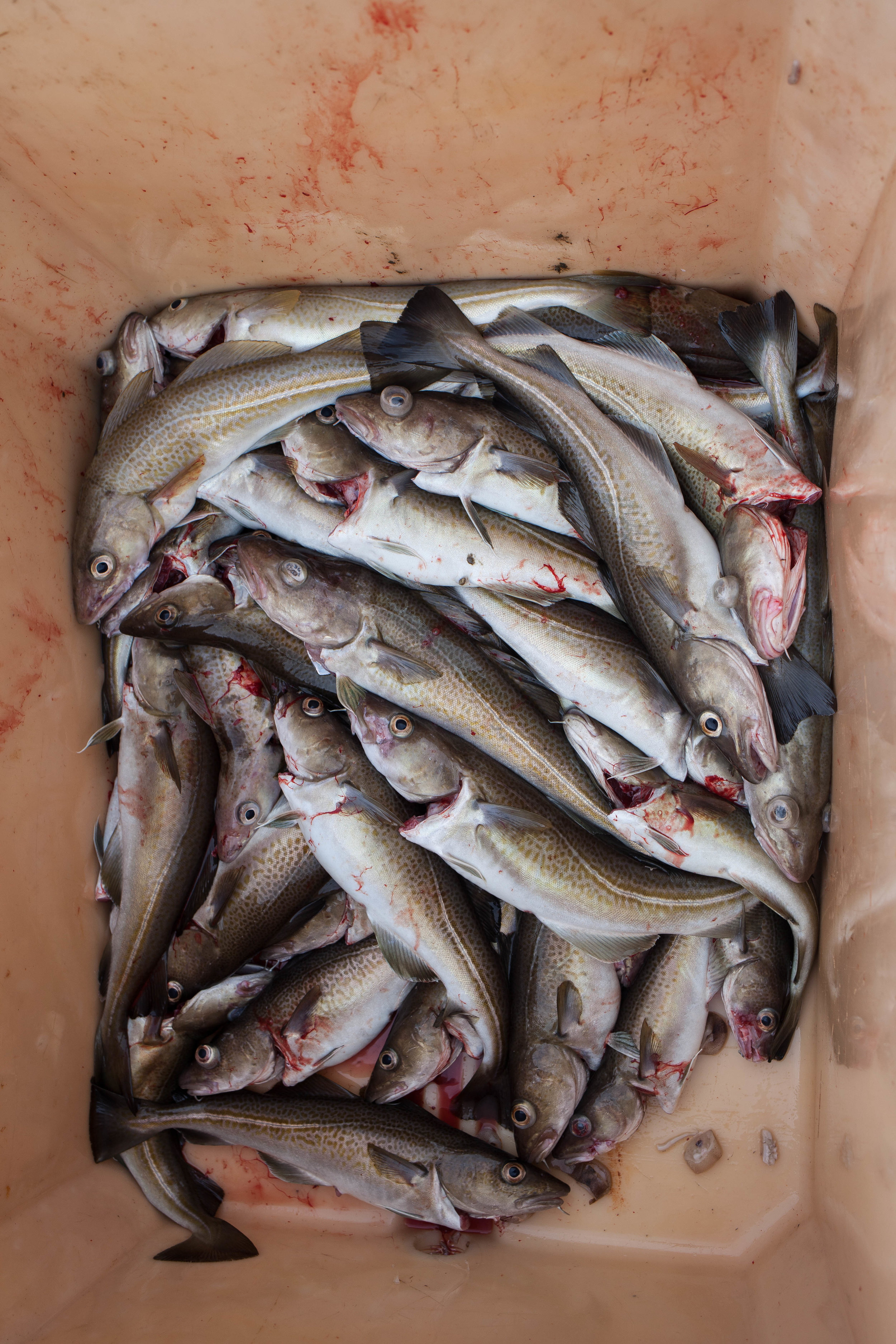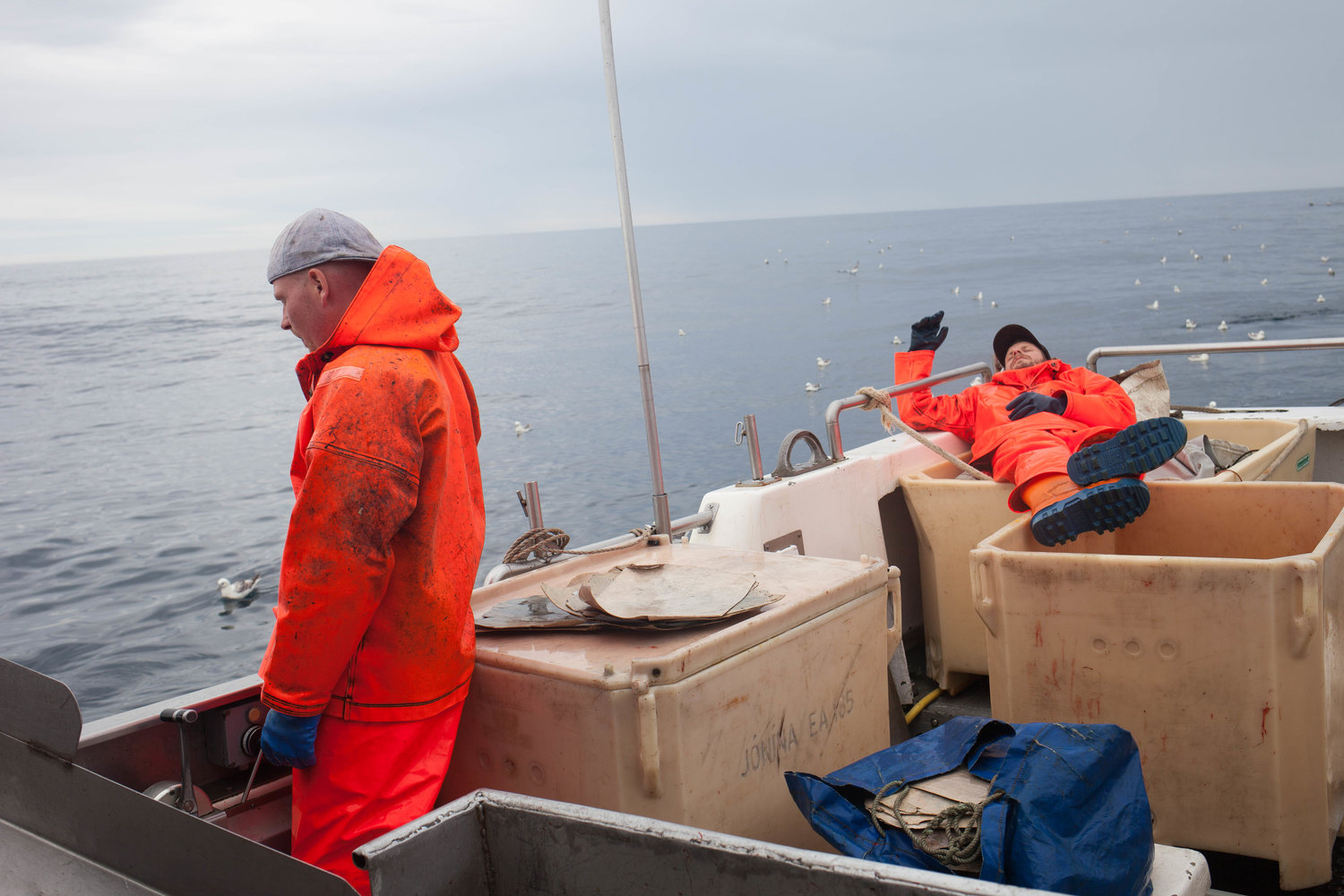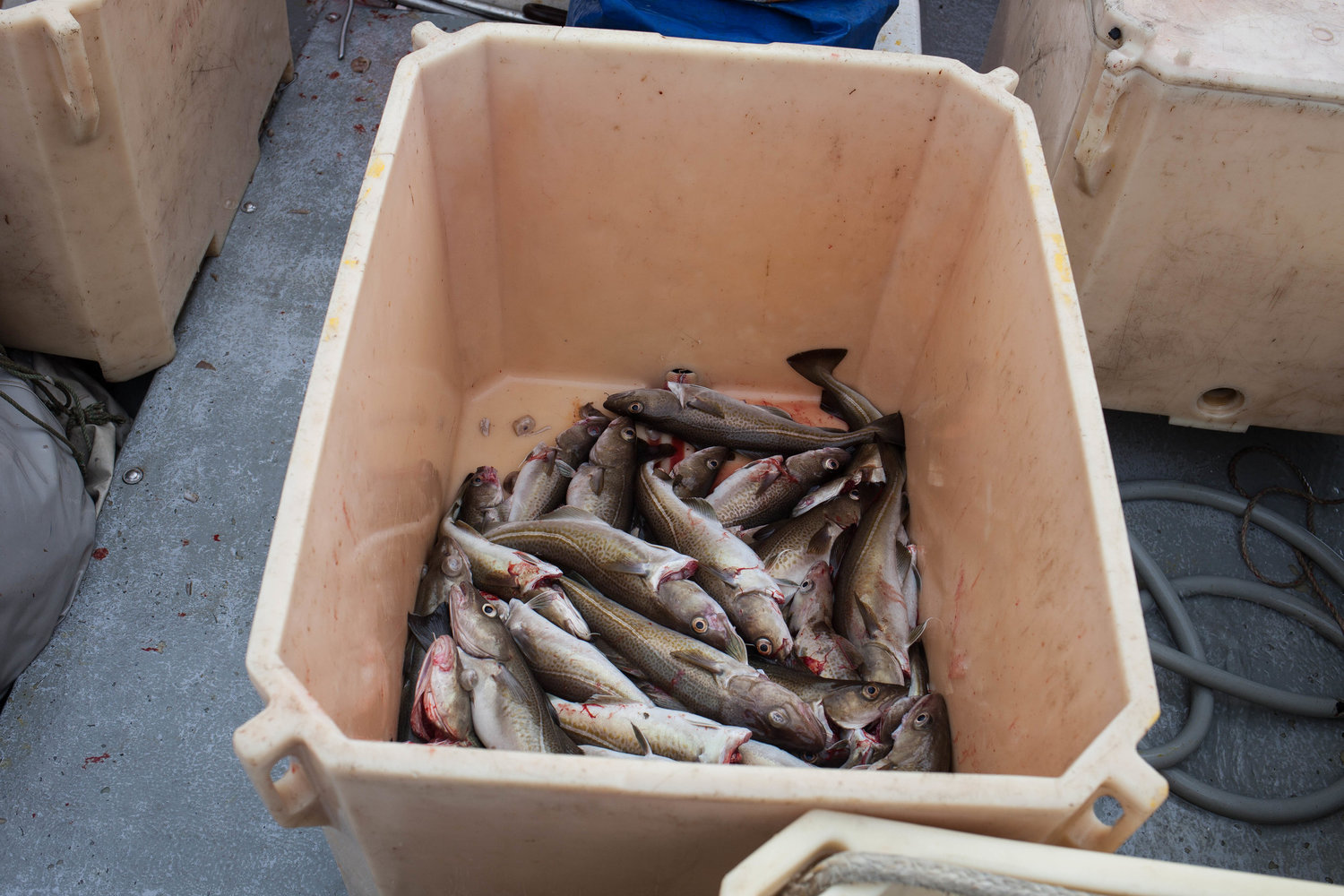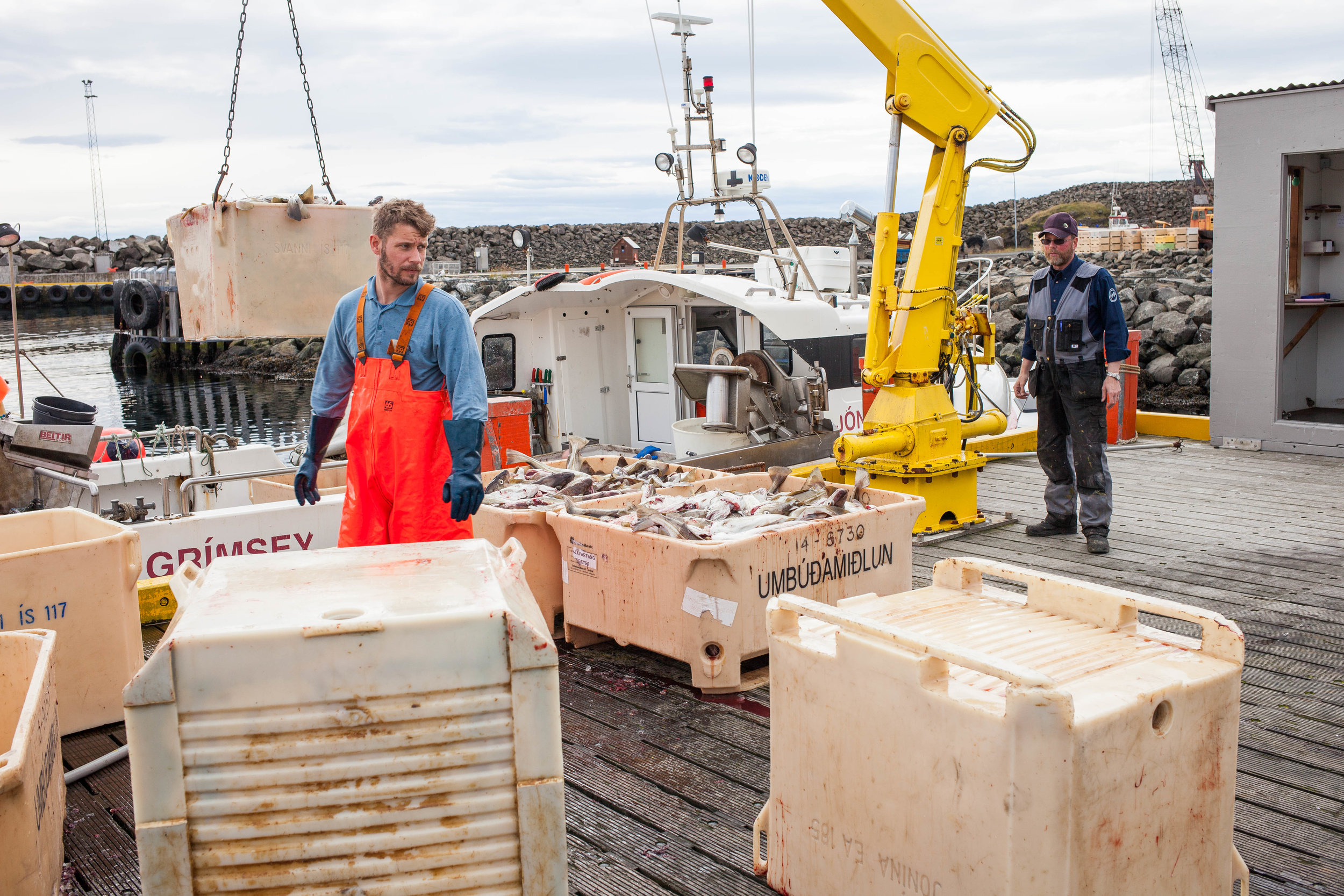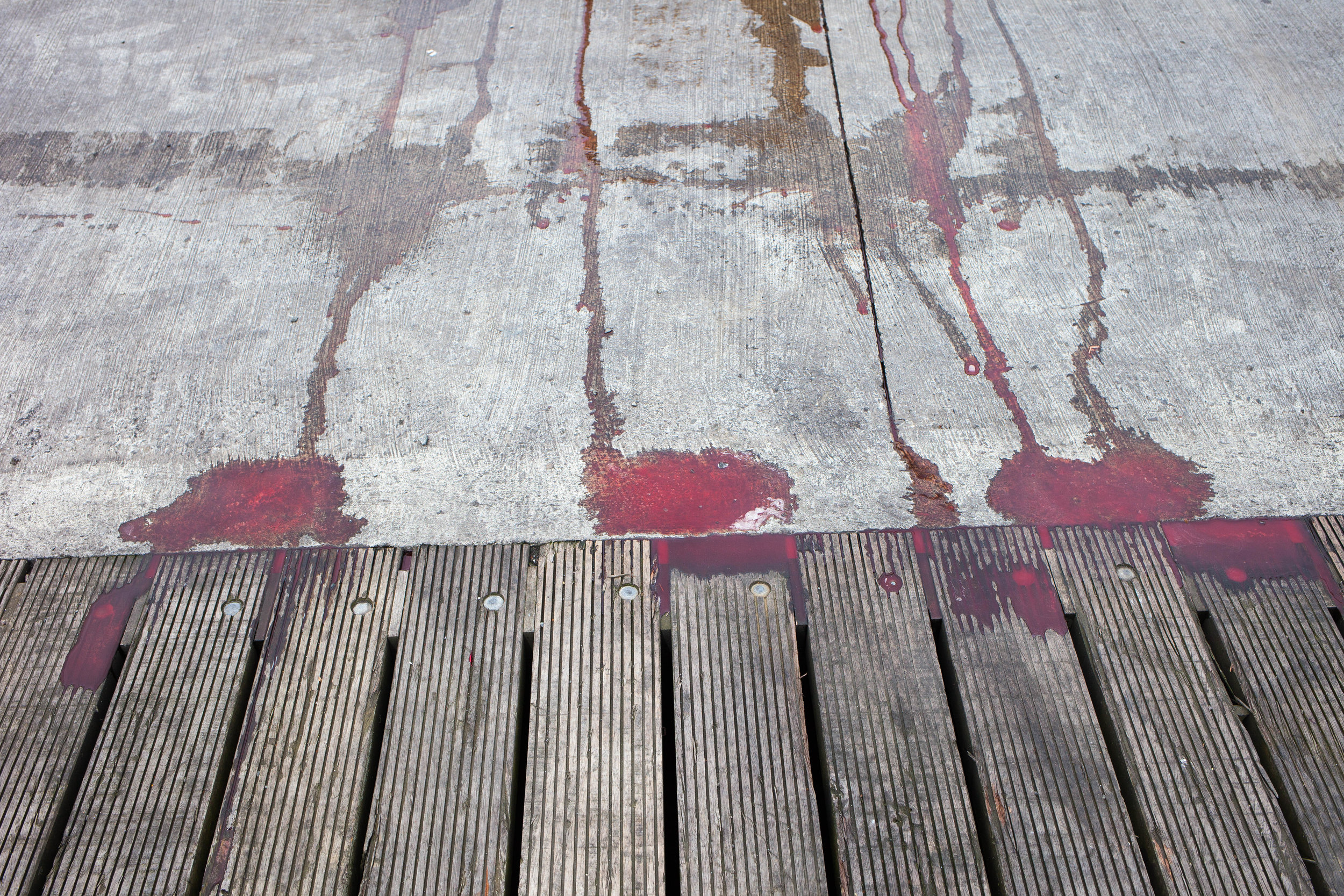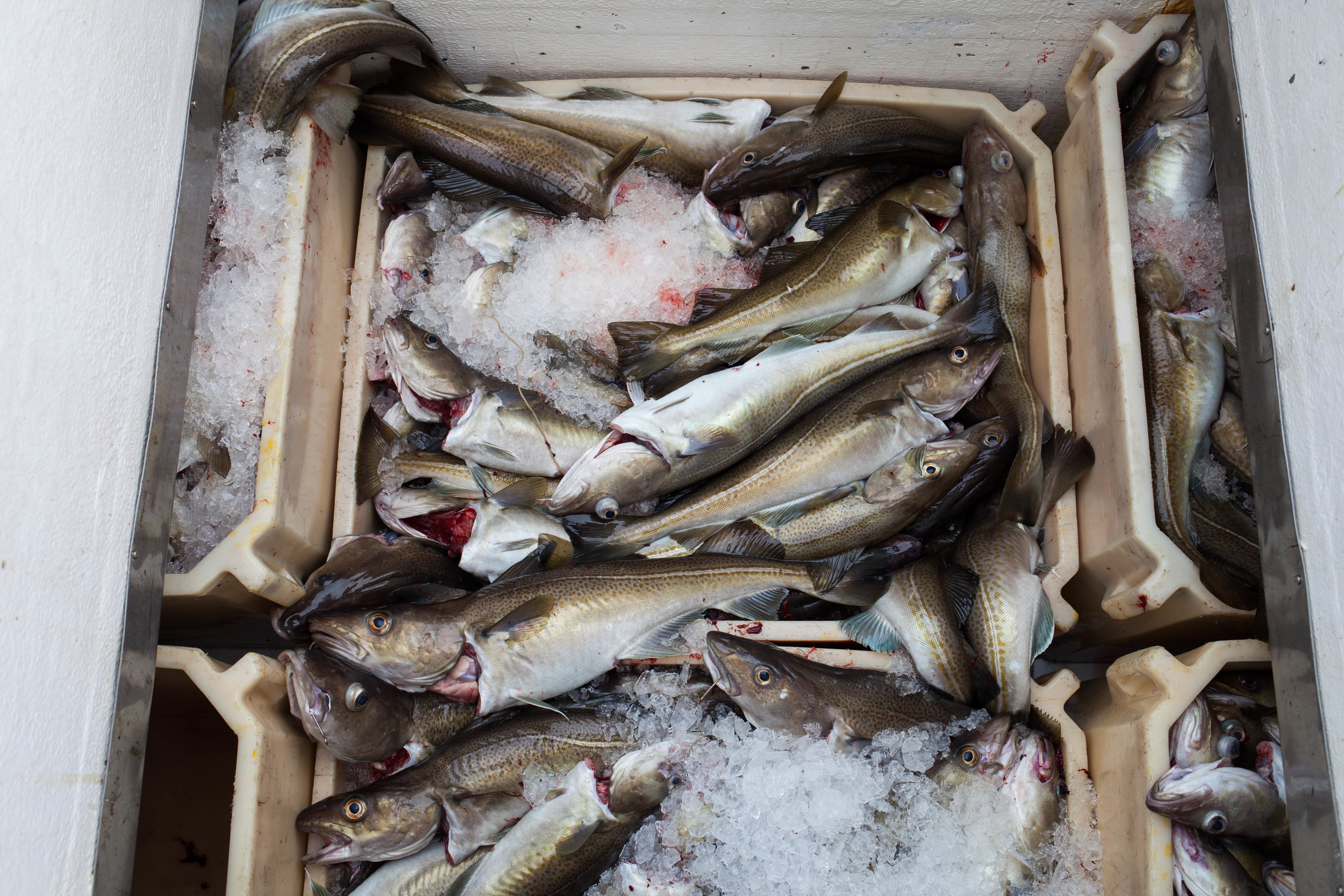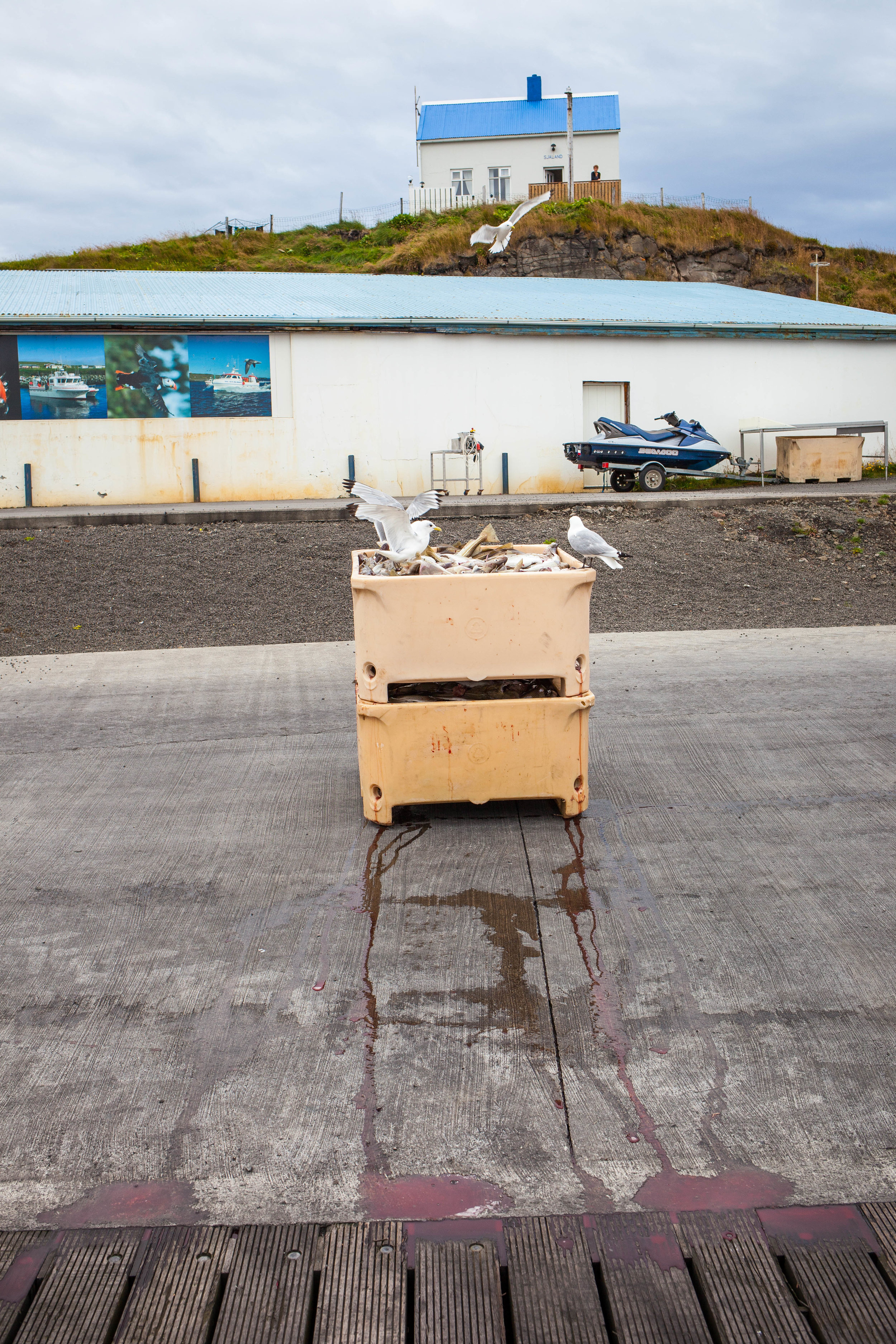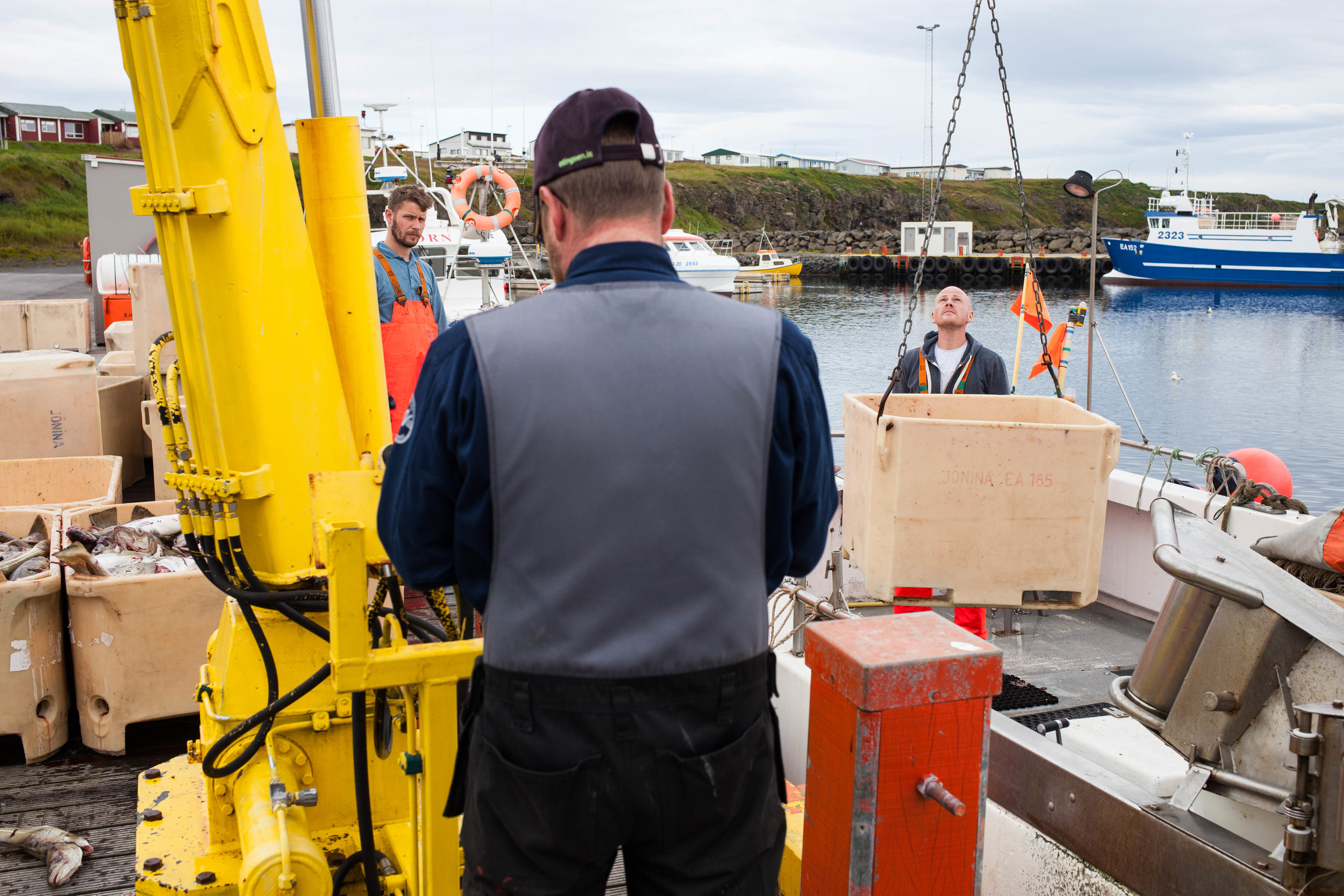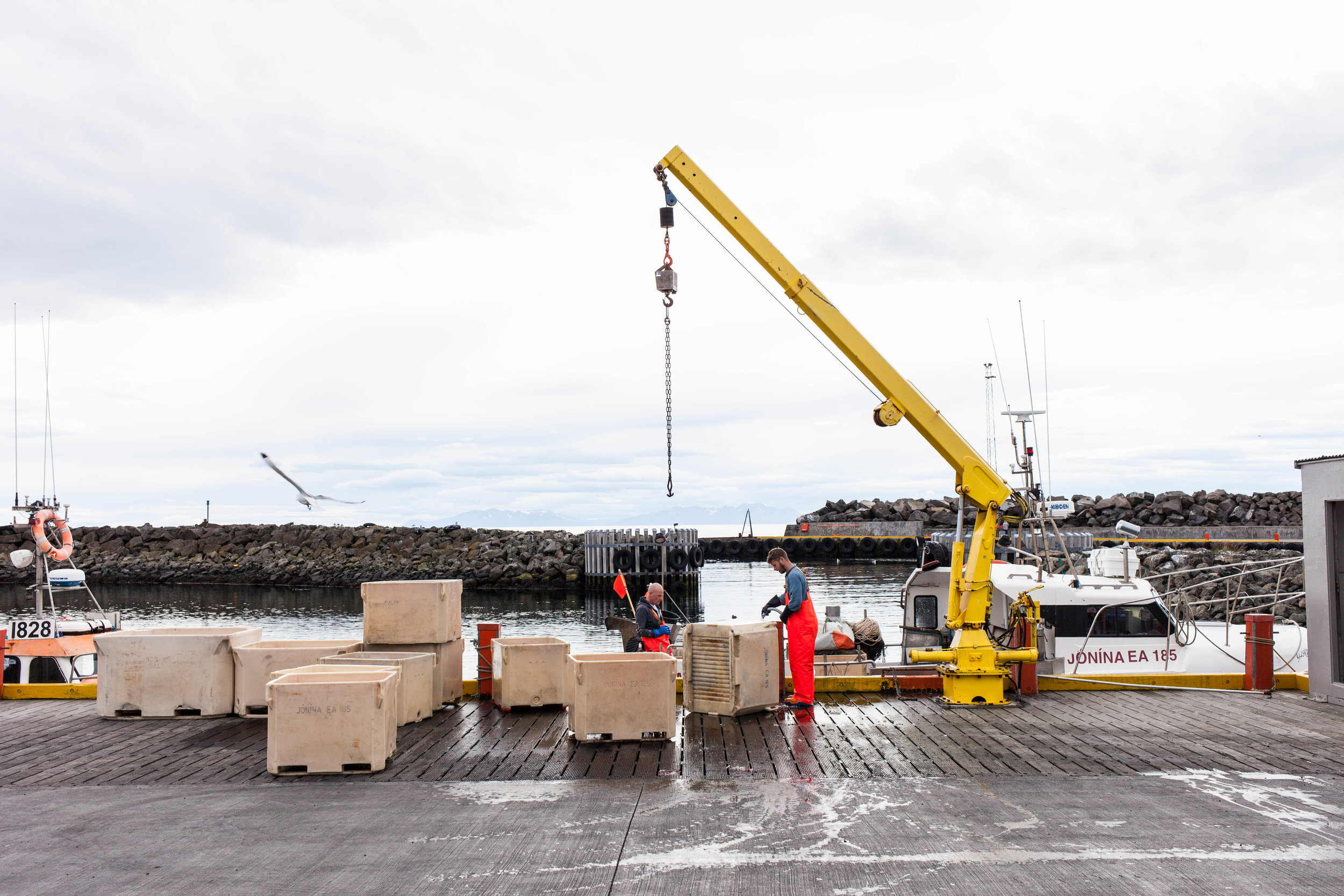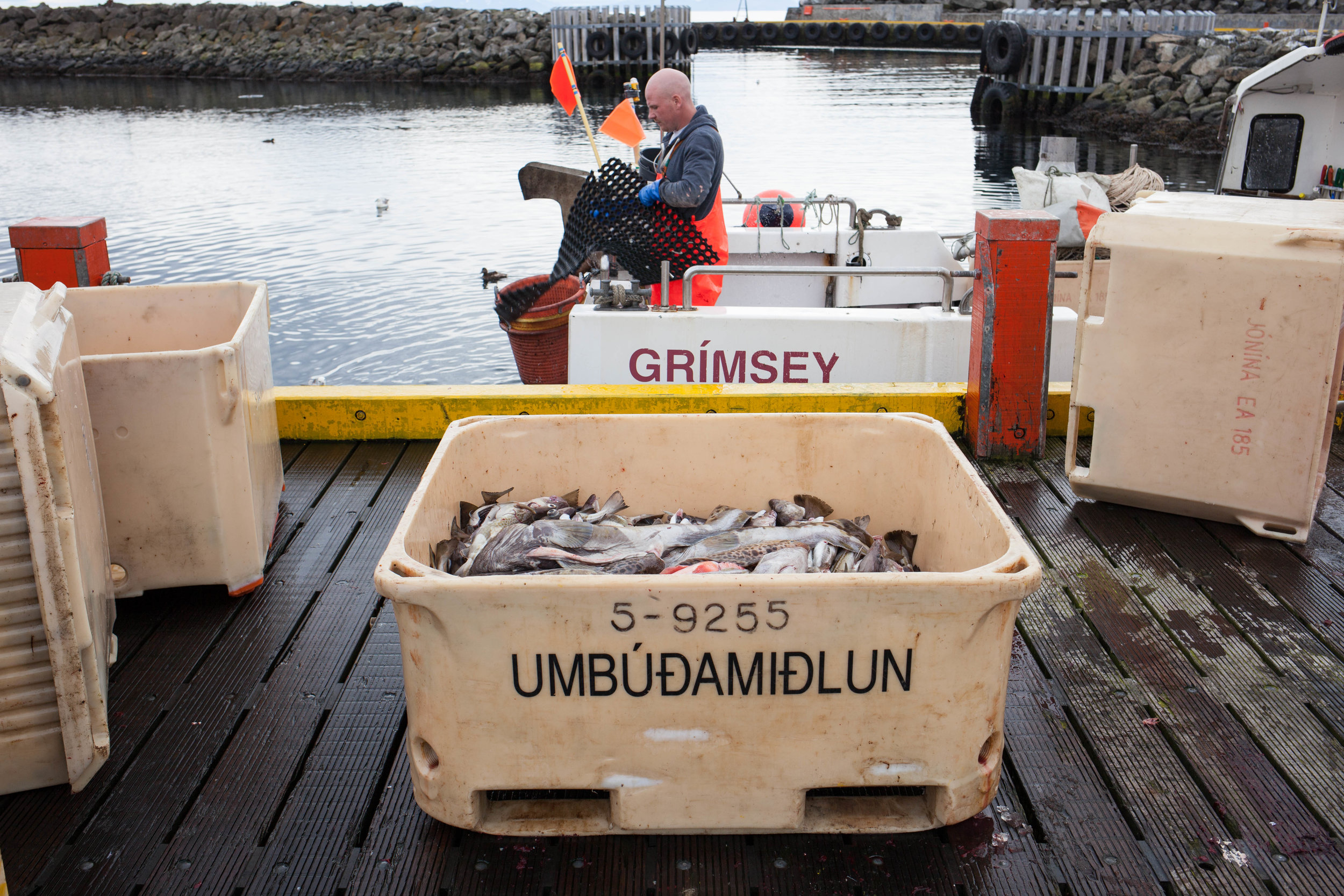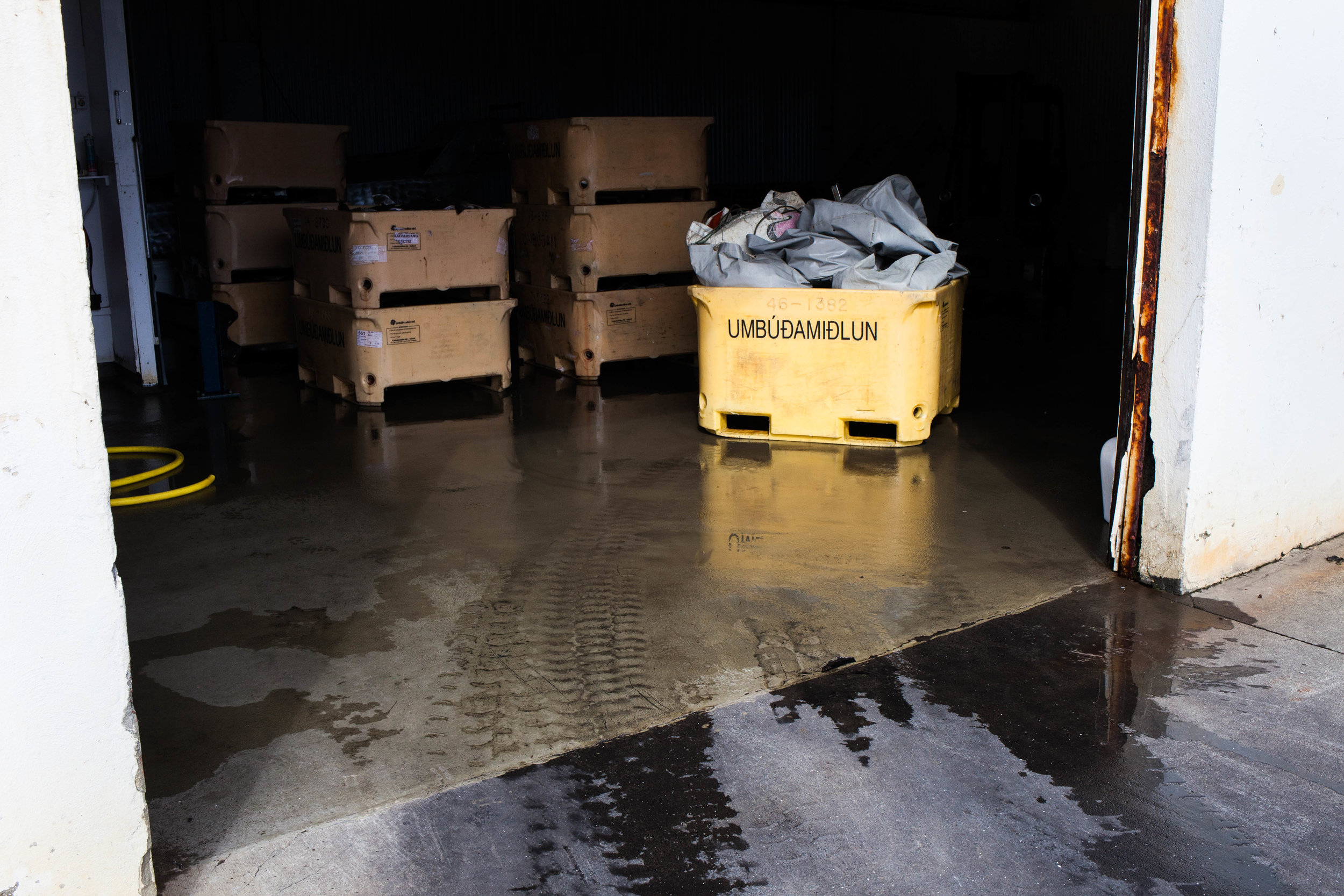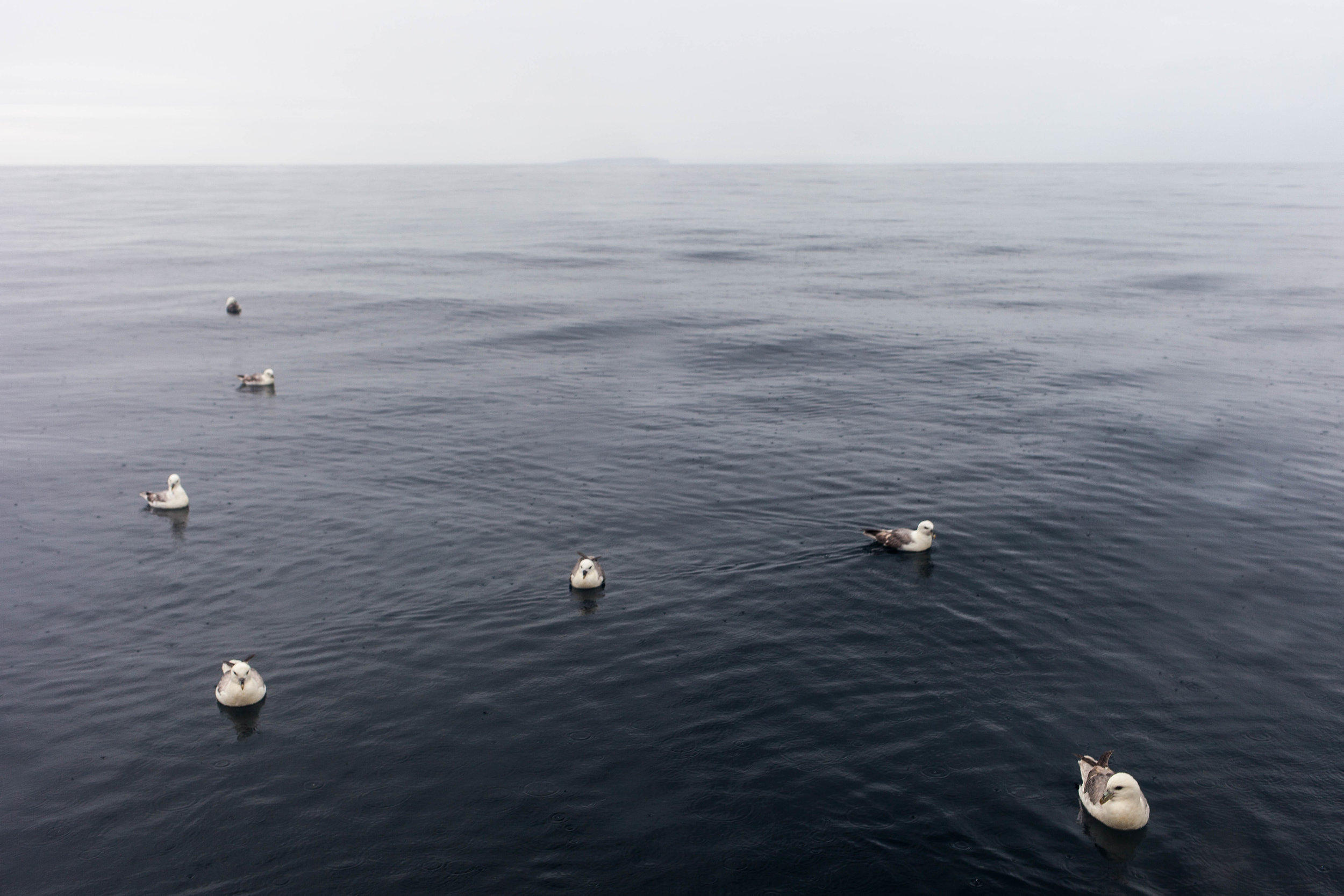
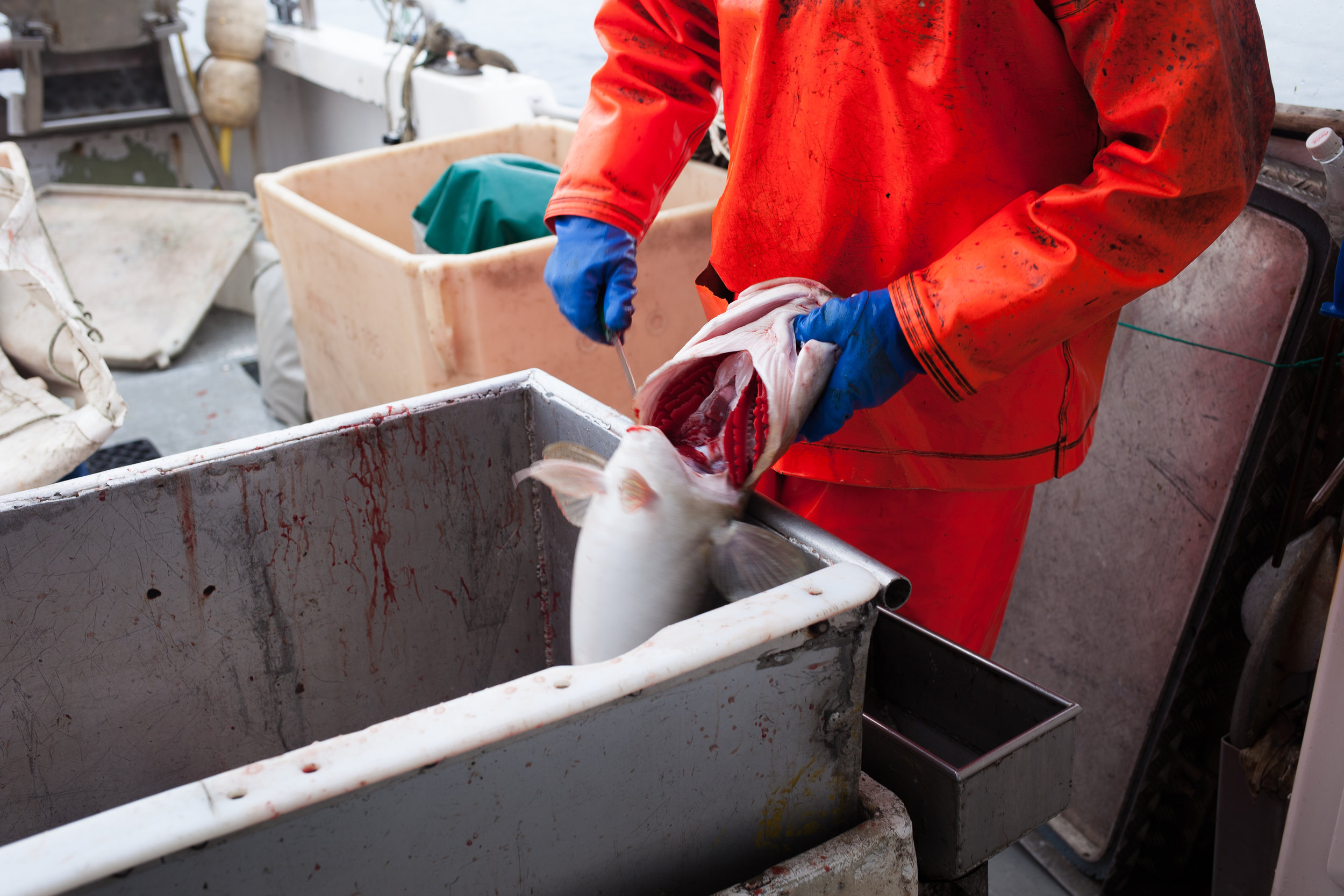
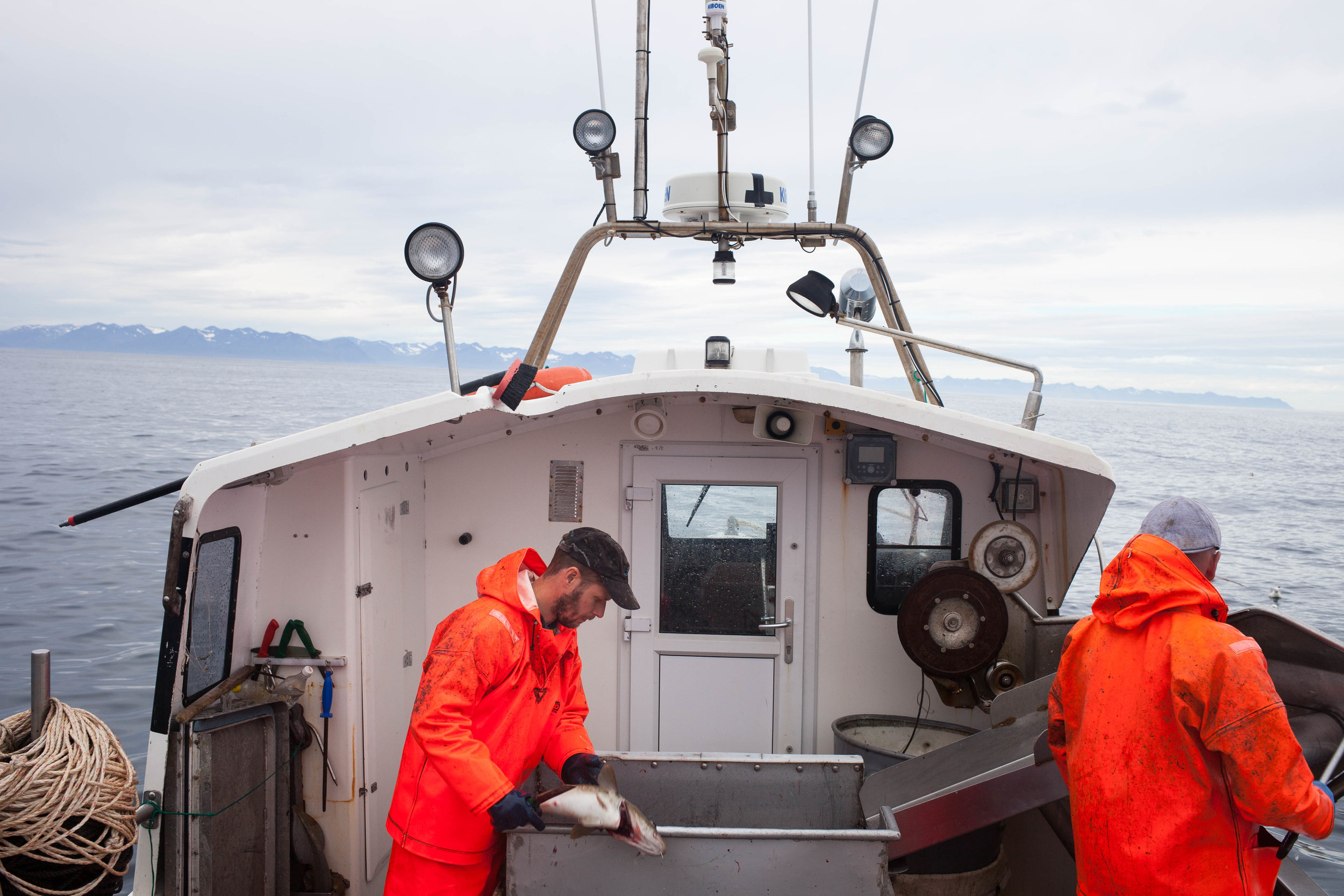
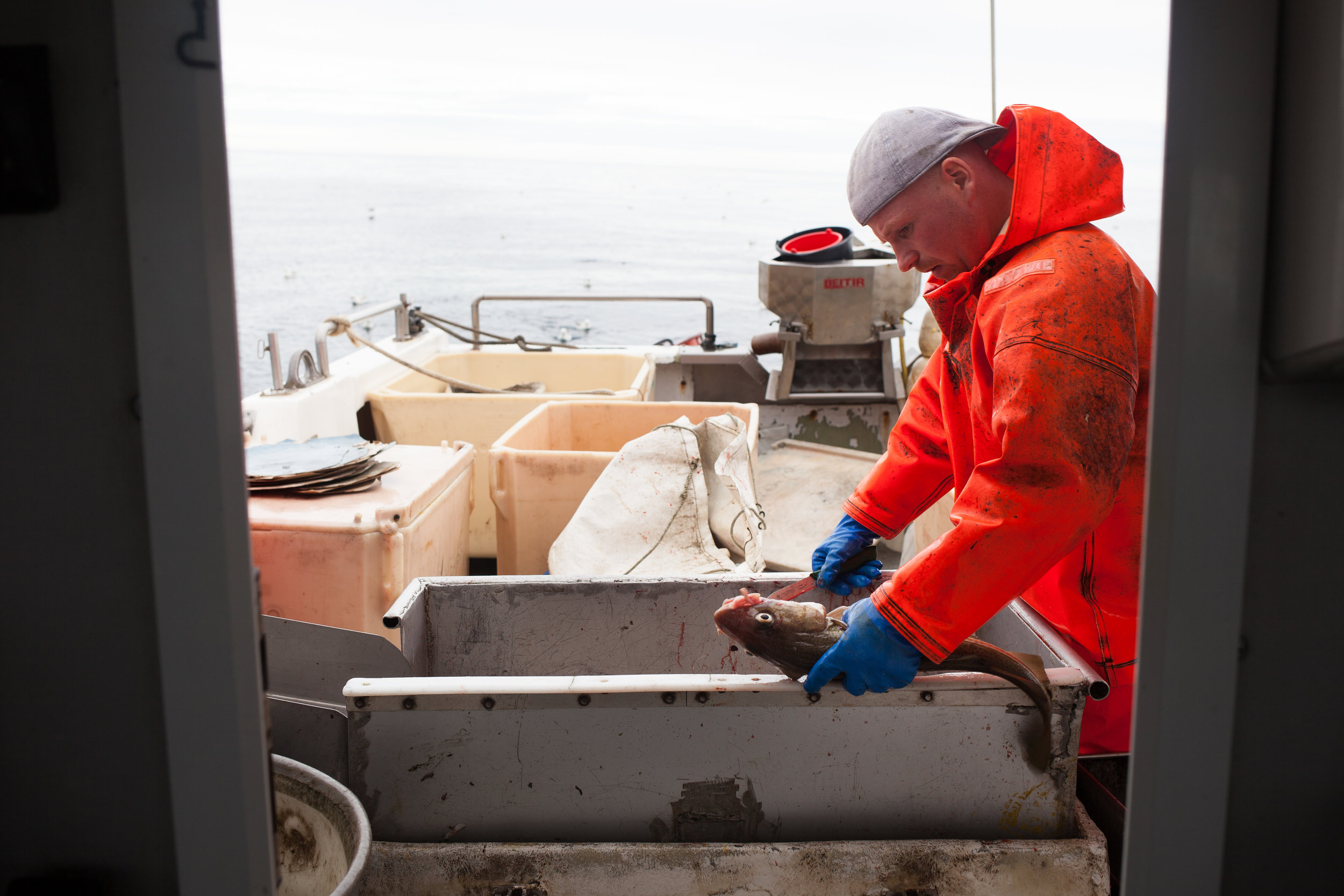
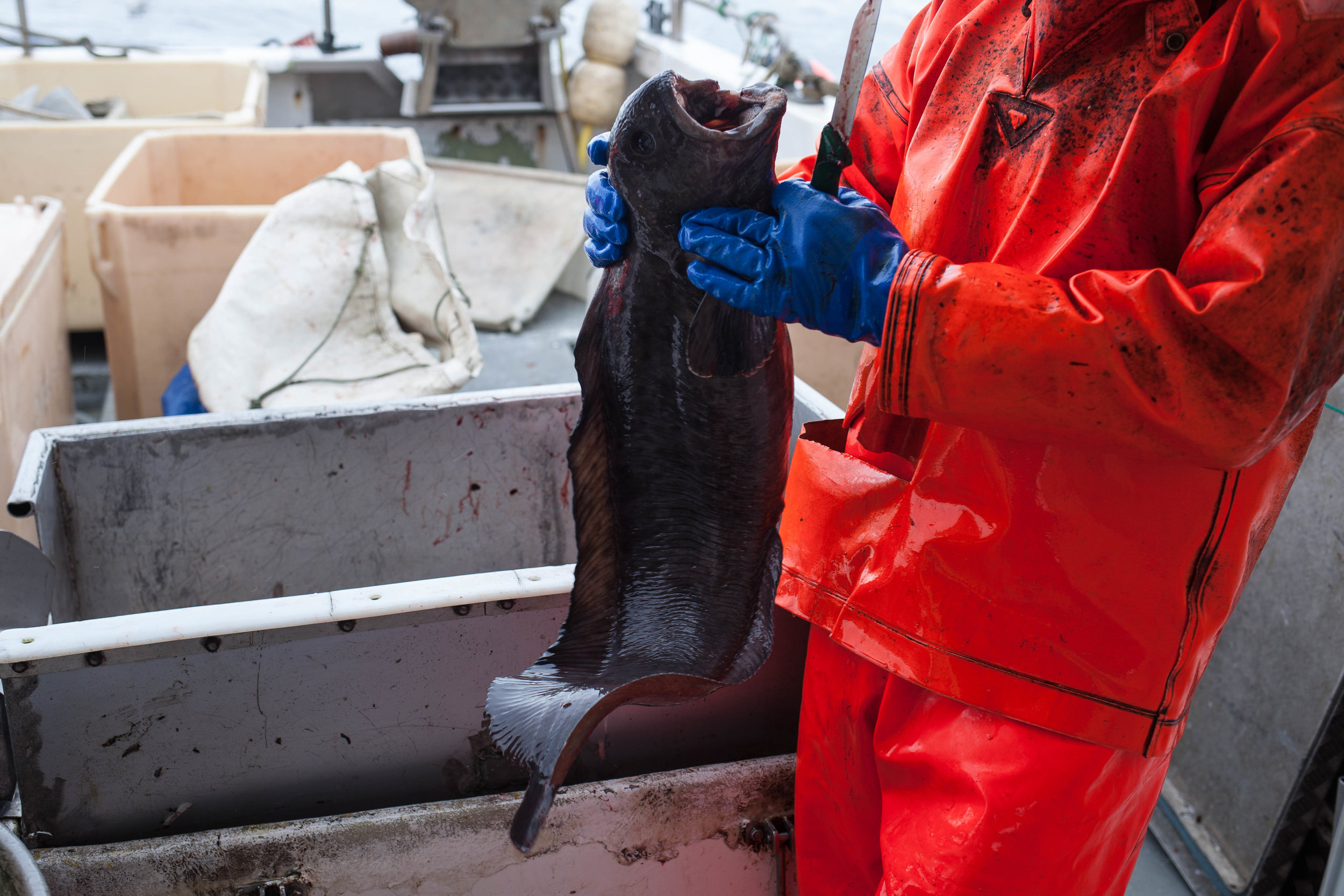
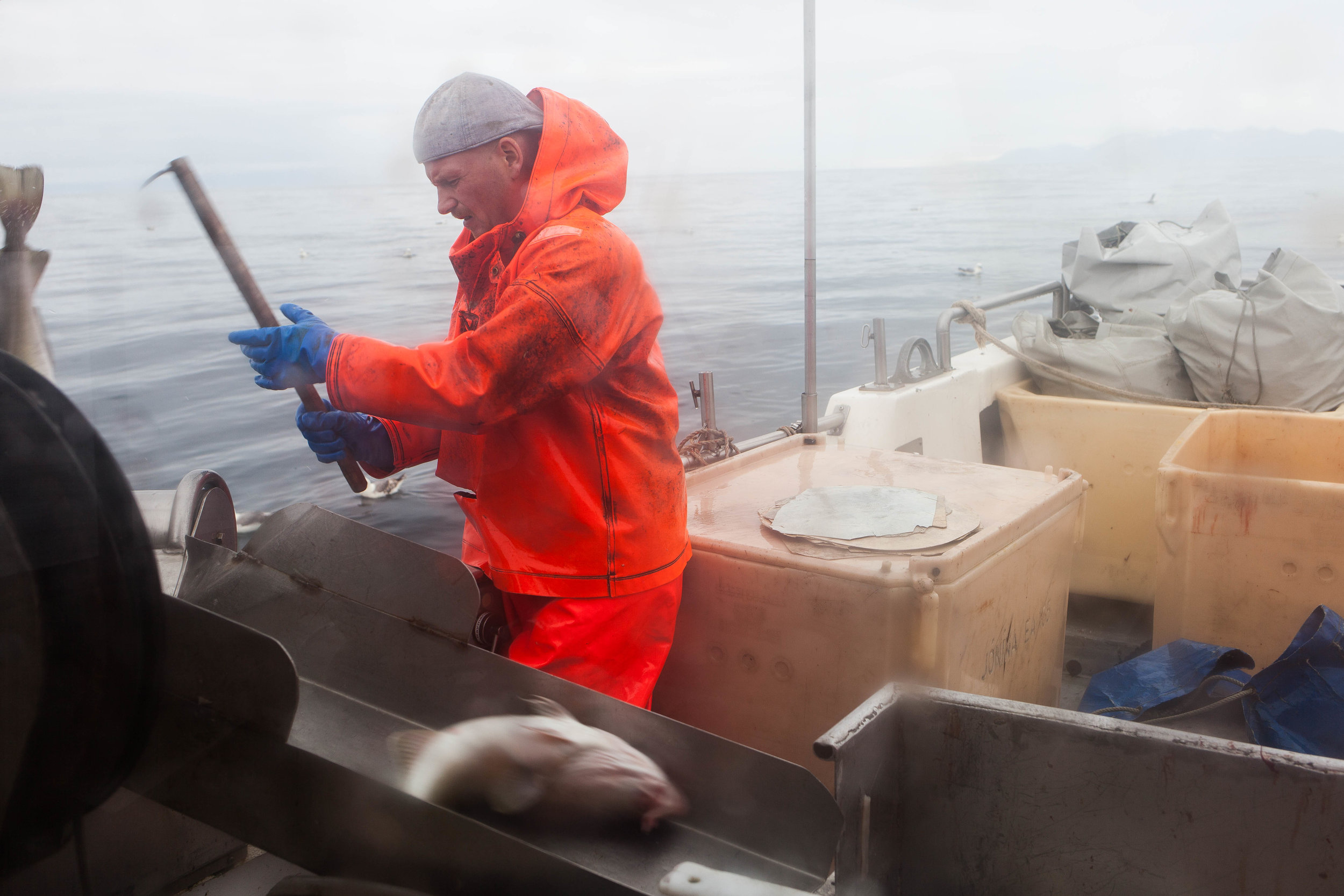
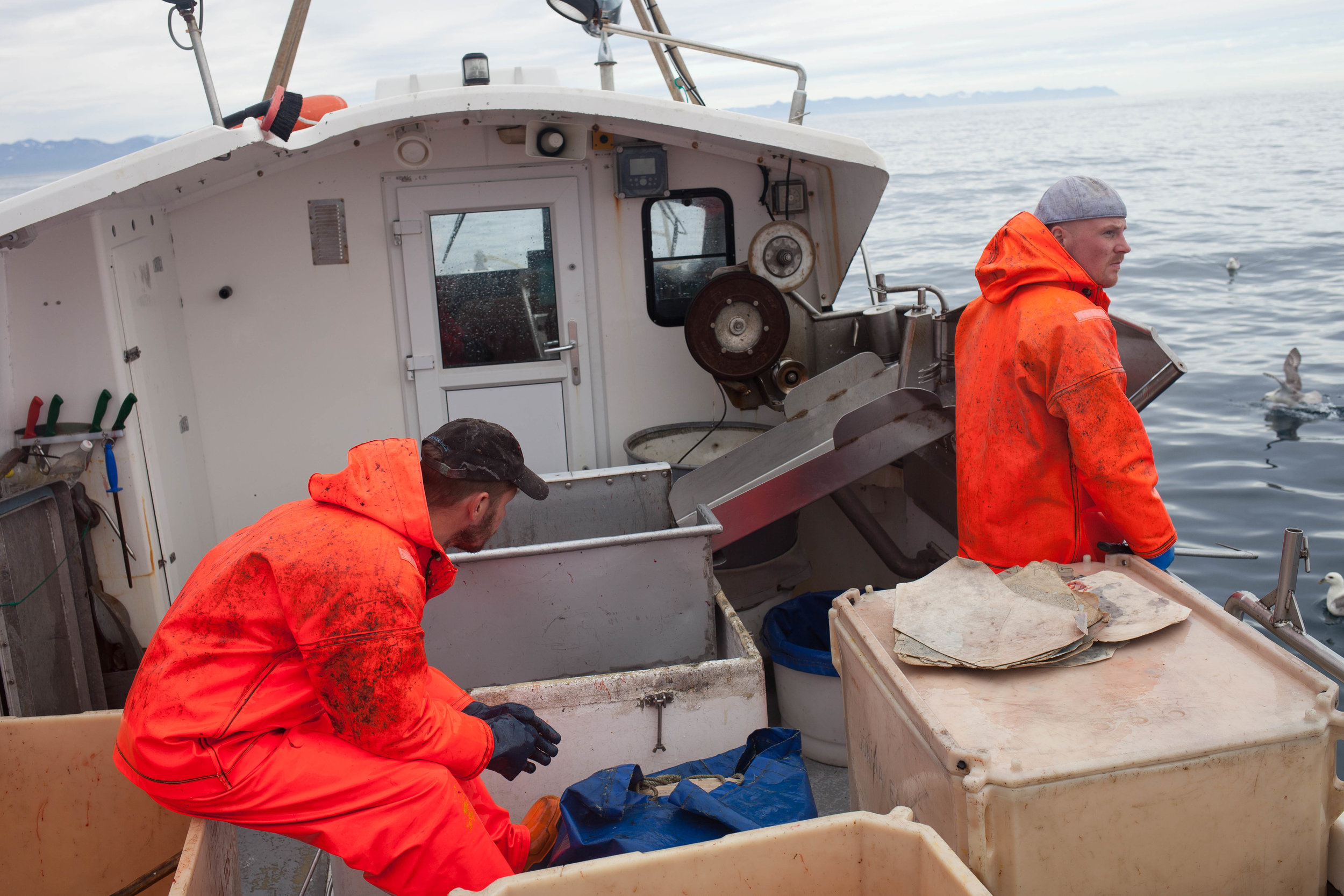
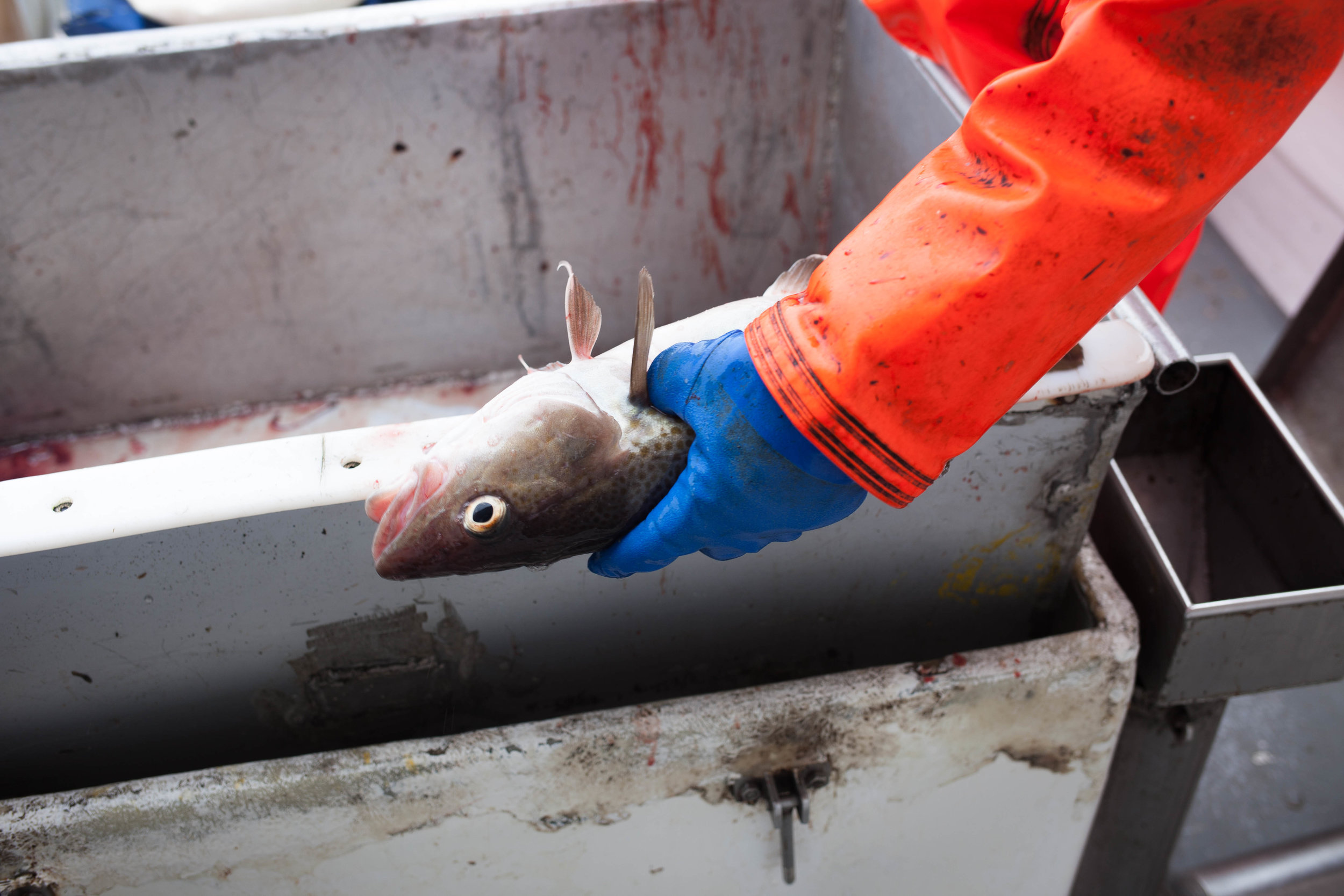
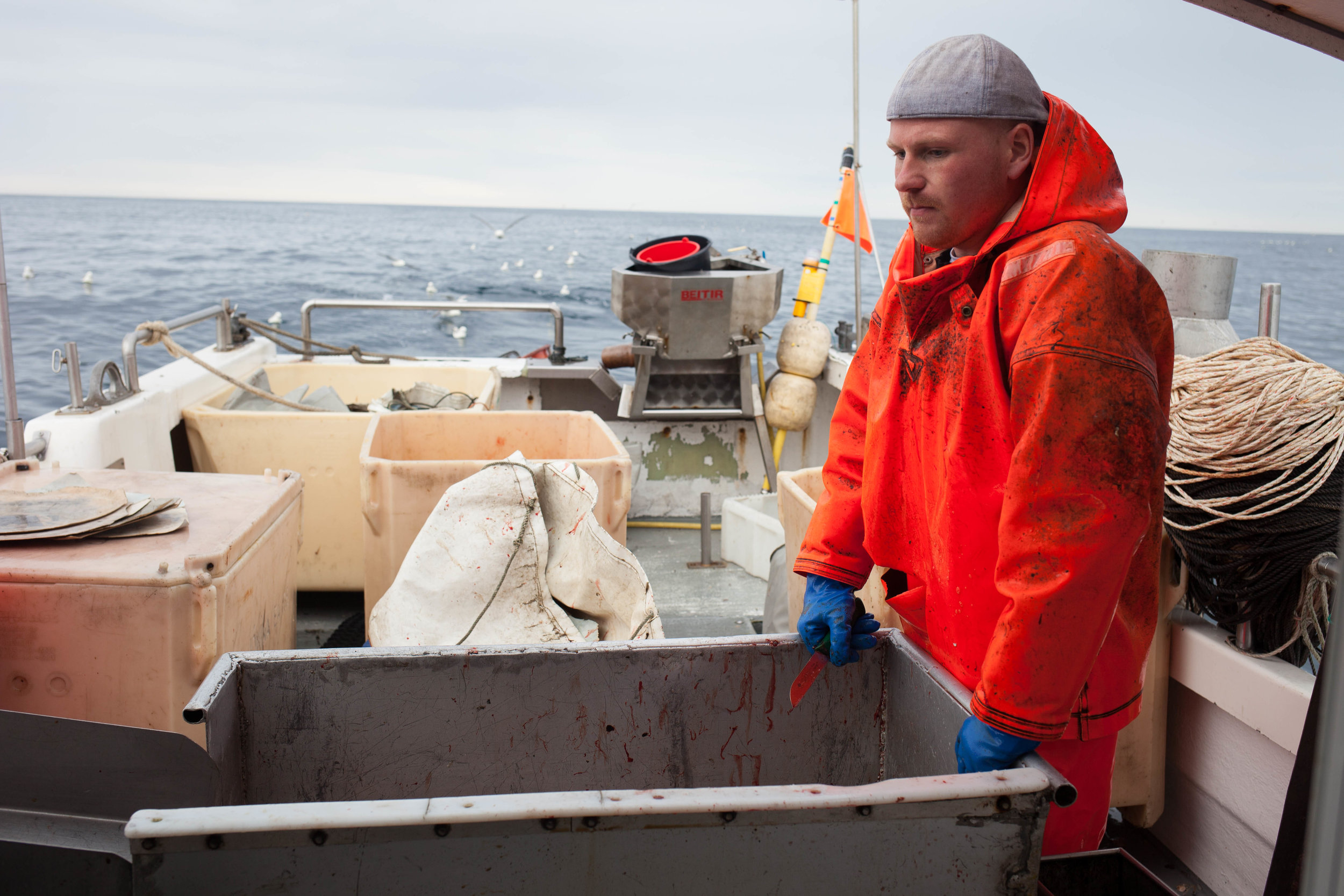
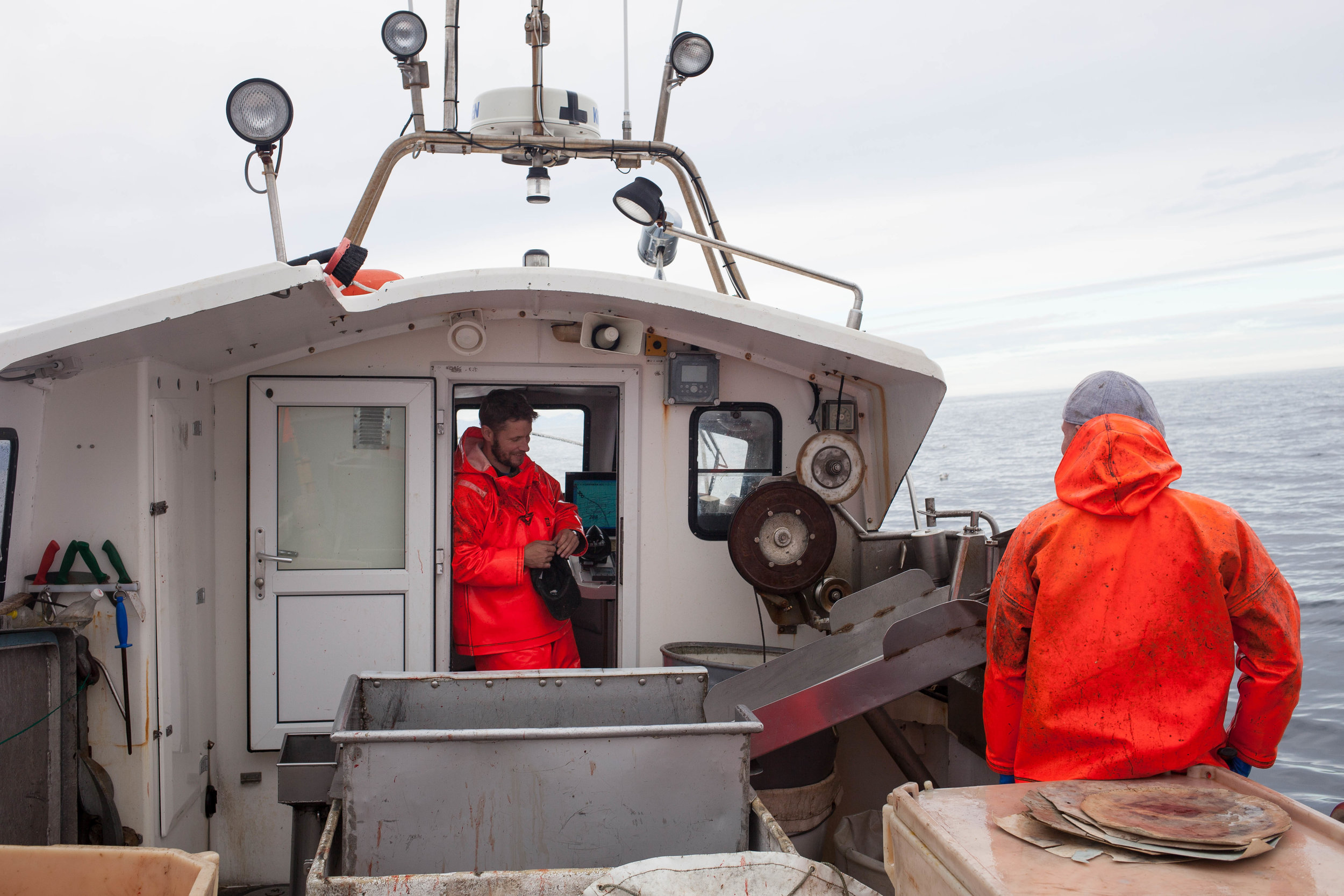
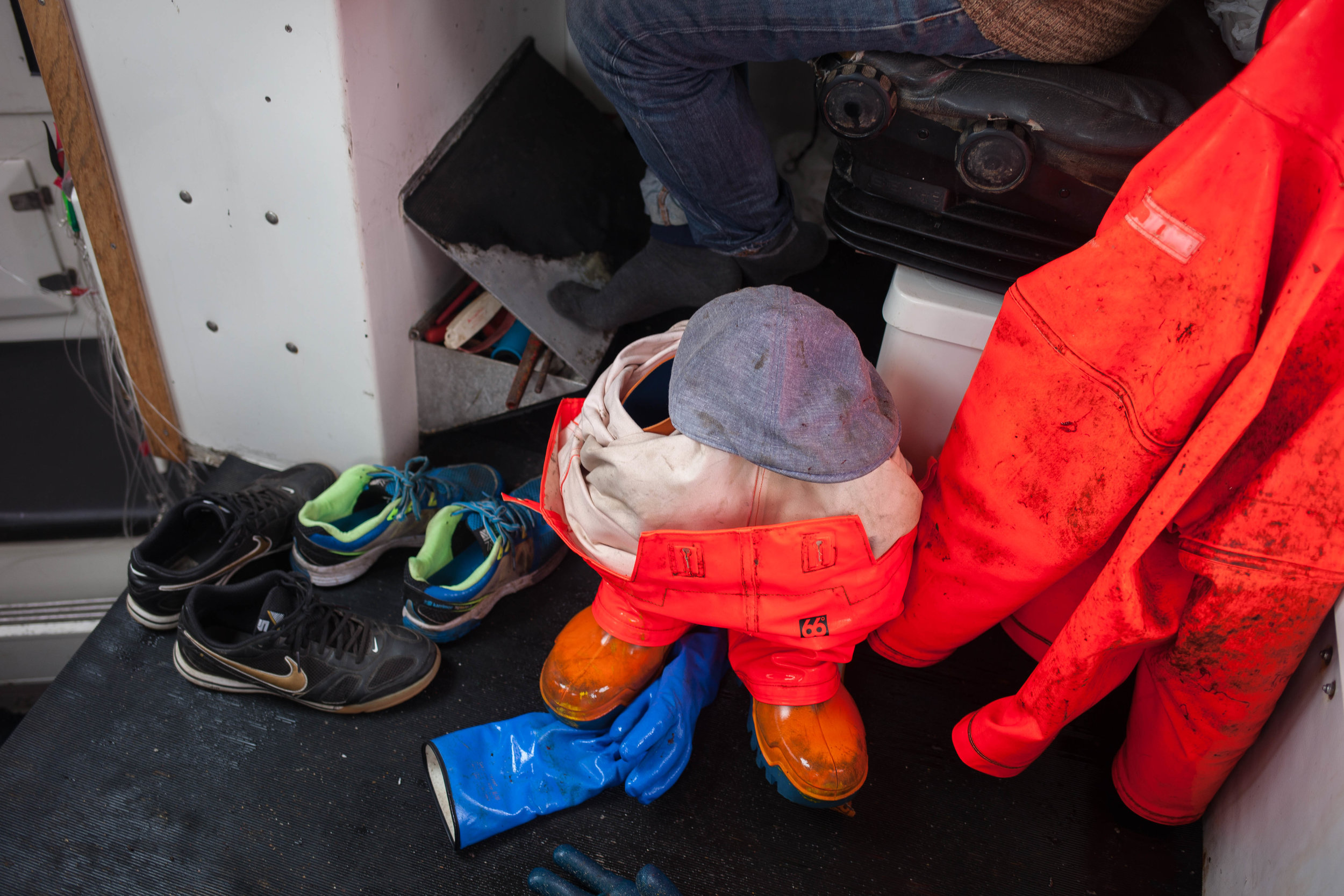
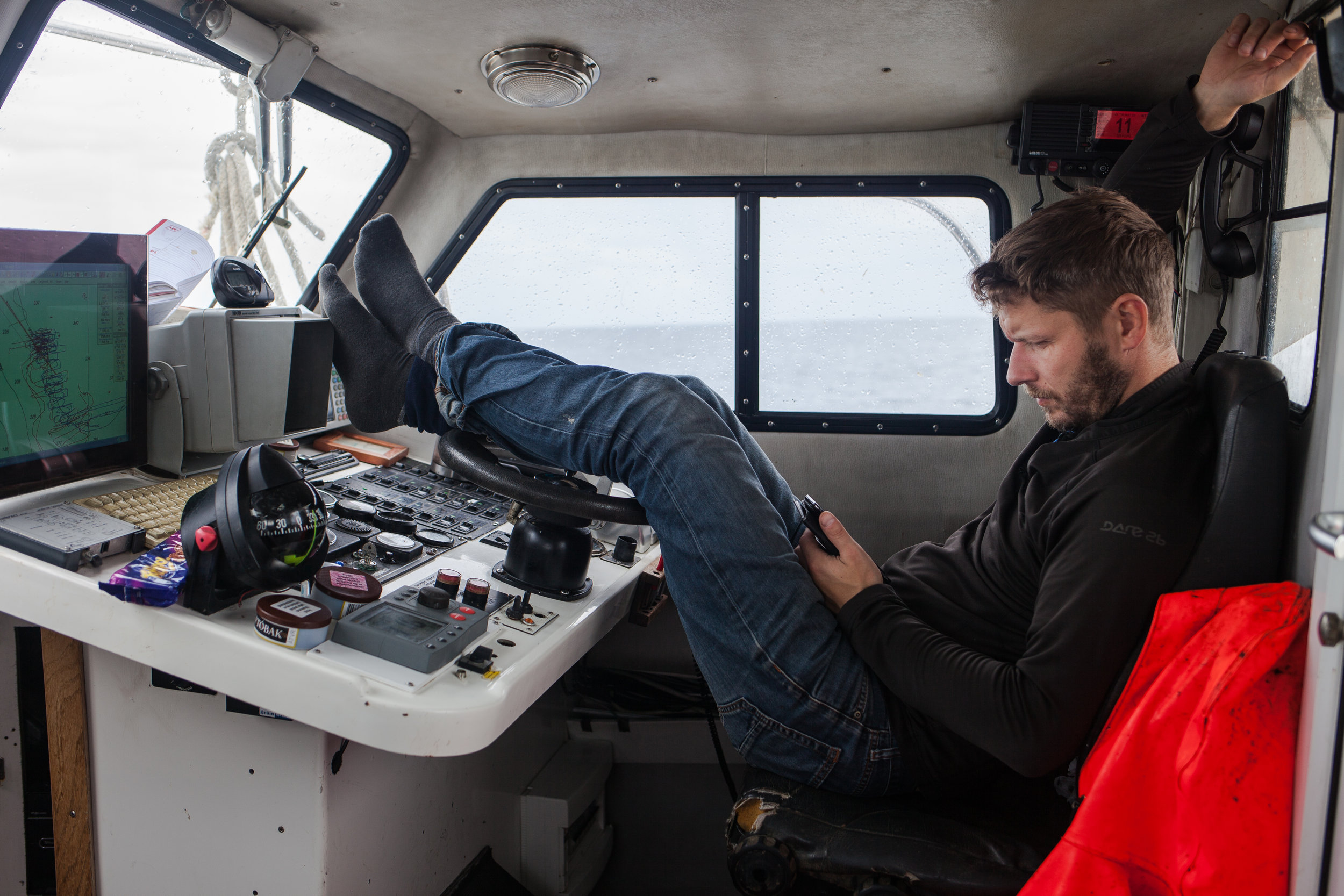
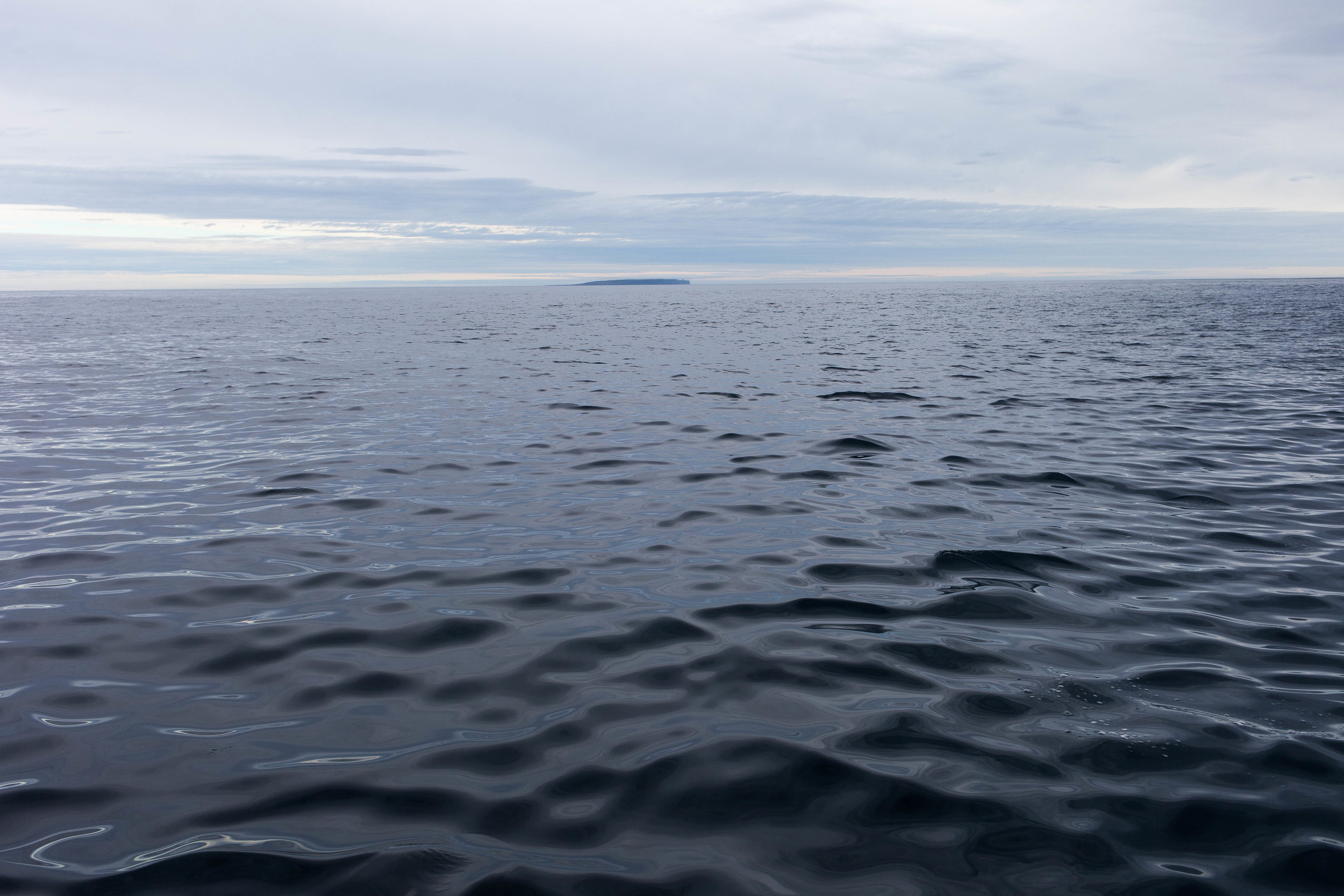
Eight hours at sea with Þor and Ragnar, fishermen from Grímsey, Iceland, a remote island forty kilometers from the mainland straddling the Arctic Circle; a place where birds outnumber the local population of roughly seventy people 10,000 to one. The day began at 4:30 AM. Nautical twilight soon gave way to the late summer sun and a cold, monochrome sky. We sailed twelve kilometers from the island where over 7,000 meters of line baited with frozen squid from Taiwan was set. A computerized mapping system recorded the precise location and depth of the line. The data collected is closely analyzed each day in effort to maximize the yearly fish quota each vessel is allocated, administered and monitored by the Icelandic Fishing Council.
We were aboard the boat of Ragnar's grandfather, Jónína EA 185: a legacy vessel of the Grímsey harbor, which Ragnar has returned to fish from every season since learning the business at age fourteen (he now resides in Reykjavík and attends the University of Iceland). Observing the process of wild caught commercial fishing was an incredible and humbling experience. The methodical approach to their familiar routine–a laborious and brave endeavor, which presented daily unknowns from weather to sharks and whales, is beyond admirable. Luckily for my amateur sea legs, the ocean was calm on this particular day.
I can't imagine a rough day aboard the modest-sized Jónína. I was more than ready to step on solid ground. We returned to the harbor with over 400 kilos of cod, haddock and a few red fish, which, to my shock, was considered a poor day. Þor and Ragnar had already met their quota for 2016, and were fishing for 2017. They would be assigned a new territory in the new year based off a lottery system of all registered Icelandic fishing vessels. Only one day of witness to the intense routine of wild caught commercial fishing left me with a deeper respect for the sea, and an eternal gratitude for the fish I can readily buy in the market at a moments notice. The incredible effort on behalf of brave fishermen and women–the dedication to their sacred waters, their traditions, and their communities–is heroic.
© 2008–2025 katrina jane
